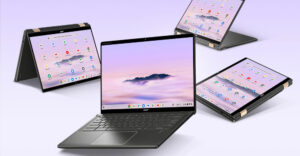
Google and Dell are teaming up on a desktop initiative that could cause Microsoft to see red. The companies sealed a deal this week to preload Google Desktop and Toolbar on Dell PCs and add Google Search to the Internet Explorer 6 side pane.
Dell and Google will offer a co-branded homepage to which new users will default upon their first visit to the Web. Financial terms of the deal were undisclosed.
Beating Microsoft to the Punch
Google CEO Eric Schmidt announced the deal in a Thursday webcast. The search giant is primarily targeting the millions of Dell customers on the home user front, but the company said the deal also includes Dell systems that will sell to small- to mid-sized businesses and even select enterprise customers worldwide. Dell customers who don’t want Google on the desktop can opt to not have it installed.
Dell’s news comes after Google’s recent complaint to the Department of Justice (DoJ) about MSN being the default search feature in Internet Explorer 7. The DoJ dismissed Google’s gripes, deciding that users have ample ability to change the default settings.
“Google wants to make sure that Microsoft doesn’t use its unfair advantage of being the owner of the browser to prevent users from choosing Google, which they probably would if it was offered on a fair basis,” Endpoint Technology Associate Principal Analyst Roger Kay told TechNewsWorld. This deal gives Google a little less reason to complain, he noted.
The Upside for Dell
The arrangement is also a significant win for Dell, as deal making with search engines could be a financial boon for the low-margin PC business. Acer, Lenovo, Compaq and other PC manufacturers would probably welcome such arrangements, Kay said, and Google would probably be pleased to colonize this very valuable desktop real estate.
In fact, the Google-Dell deal could open up a land grab for PC desktops, Kay predicted. Dell has demonstrated that it has monetizable value on its screen real estate, which has traditionally been rather static. PC makers have put icons on the desktop for a long time, he noted, but most users recognize them as spam-laden liabilities and don’t click on them.
“This is quite different from years ago when AOL was trying to buy real estate on the desktop before browsers were popular. AOL wanted to put an icon on the Compaq desktop and was ready to pay a lot of money for that, but Microsoft put the kibosh on it,” he recalled.
Mighty, Mighty Google
Microsoft, however, is likely to be striking up deals of its own in the face of the Dell-Google deal. Its MSN and competitors such as Yahoo will need to improve their search capabilities if they want to compete with Google, whose service accounted for more than half of all Internet searches in April, according to Nielsen//NetRatings.
“To me, the gold standard is getting the results you want on the first page. Google hits that standard 99 percent of the time. The other guys don’t. That’s what matters,” Kay reasoned. “People would choose the other search engines if they worked well.”




















































